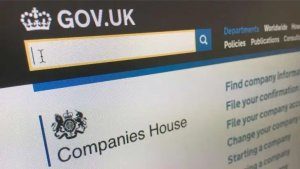- Banking & financial disputes
- Corporate recovery, restructuring & insolvency

Longer Reads
A review of the post-Brexit UK financial sanctions regime – where are we now?
First written for Thomson Reuters Regulatory Intelligence, Banking Disputes Partner Robin Henry reviews the post-Brexit international sanctions, and where the UK is currently.
3 minute read
Published 15 September 2021
Key information
A year ago the UK introduced the Global Human Rights Sanctions Regime, which gave the foreign secretary the power to sanction individuals involved in human rights abuses worldwide. These are referred to as the “Magnitsky sanctions”. The UK sanctions impose asset freezes, and travel bans. This regime follows a similar set of programmes adopted by the United States and Canada. A separate UK Global Anti-Corruption Sanctions Regime was published in April 2021.
Following its departure from the EU, the UK now has the opportunity to develop its own international sanctions regime, separate from the EU. The Foreign Office is now responsible for international sanctions policy and this will be implemented and enforced by the Office of Financial Sanctions Implementation (OFSI) on behalf of HM Treasury.
The new UK sanctions regime was brought into force by the Sanctions and Anti-Money Laundering Act 2018 (SAMLA) on January 1, 2021. Some SAMLA regulations mirror sanctions measures in force in the UK under EU regulations and give them an independent statutory footing under UK legislation.
SAMLA 2018 enables legislation to allow the UK to impose economic and other sanctions as well as money laundering regulations.
Sanctions can take different forms:
Financial sanctions: these involve asset-freezing measures affecting the provision of funds and economic resources to certain entities or individuals (referred to as “designated persons”). This also includes restrictions on the use of assets by designated persons, and
receipt and transfers of funds to others.
Trade sanctions: these prohibit the trade in certain goods from affected countries. These are often arms and commodities such as oil, timber, gold and diamonds, and equipment for use in the nuclear, oil and gas or petrochemical sector.
It is prohibited to engage in an activity the object or effect of which is to circumvent sanctions. A breach of financial or trade sanctions law can result in the commission of a criminal offence punishable by imprisonment, a fine or both.
The UK now has the power to go its own way in terms of sanctions policy, although the UK and the EU have expressed their intention to coordinate post-Brexit sanctions policy as much as possible. Nevertheless, there are significant differences between the two and
these may increase over time.
Designated persons
Some EU designated persons have been removed from the UK list after the UK determined that certain EU designations did not meet the required criteria under SAMLA. As a result, certain persons subject to EU restrictions are no longer subject to UK financial sanctions. Conversely, the UK has added a number of new designated persons to its list, without reference to the EU.
Structure of regimes
The UK has changed the structure of some of its financial sanctions regimes. For example, in April 2021, the UK Global Anti-Corruption Sanctions Regulations 2021 came into force, bringing in an international anti-corruption regime aimed at preventing and combatting
serious corruption and bribery. This has replaced a number of jurisdiction-based regimes aimed at misappropriation of state funds in countries such as Tunisia, Egypt or Ukraine.
Consequential differences of the UK leaving the EU
Those affected by UK sanctions may have changed as a result of the UK leaving the EU. For example, designated persons subject to EU sanctions include entities which are more than 50% owned by non-EU incorporated subsidiaries. Under the new UK regime, the
comparable provision applies to non-UK incorporated subsidiaries, which means that EU-incorporated subsidiaries are now caught by UK financial sanctions.
As a result, although the list of entities subject to financial sanctions is the same under the EU and UK regimes (for example, in relation to Russia), the full extent of entities affected by them will now differ between the two.
Differences in licensing
The UK has added certain grounds for approving licences which allow designated persons to undertake certain activities which would otherwise be prohibited. The UK financial sanctions regime’s additional grounds are where the proposed transactions are for:
• diplomatic missions;
• humanitarian assistance; and
• extraordinary situations (although there is currently no guidance as to what would constitute an extraordinary situation).
The government now also has the power to issue general licences, which are commonly not available under the EU financial sanctions regime. These licences allow parties to undertake certain activities that would otherwise be prohibited under the UK’s financial
sanctions regime. The UK has issued general licences in relation to Russia and counter-terrorism sanctions regimes.
Changes to definition of “ownership and control”
Whereas the freezing of assets by the EU is subject to a rebuttable presumption that it applies to the assets of entities which are owned and controlled by a designated person, the UK regime provides that funds or economic resources are to be treated as owned, held or controlled by a designated person if they are owned, held or controlled by a person who is, in turn, owned or controlled by a designated person.
The test for establishing ownership and control under the UK rules is that either:
• (a) the designated person holds more than 50% of the shares or voting rights in an entity or has the right to appoint or remove a majority of the directors; or
• (b) it is reasonable to expect that a designated person could ensure that the affairs of the entity are conducted in accordance with their wishes.
The UK has also helpfully provided guidance on how to apply the test of ownership and control, which is often a difficult question to answer both for financial institutions and entities which are concerned that they may be affected by sanctions.
How can UK firms in the financial services sector adapt to the new UK sanctions regimes?
Organisations should take note of the changes which may occur as a result of the UK’s regime diverging from the EU. Where businesses are working with EU businesses, they should ensure that they have the systems in place to monitor both the new UK sanctions lists and the existing EU lists.
Where companies deal with countries elsewhere, they should check that the lists are regularly maintained to ensure compliance with various sanctions regulations.
The extent of future divergence?
The UK is now equipped to create its own financial sanctions rules, and now that it is outside the EU, the development of UK sanctions may increasingly diverge, particularly if the UK considers it convenient to align itself with U.S. policy rather than that of the EU.
Nevertheless, there are likely to be limits to this divergence as it is recognised on all sides that international sanctions have most impact when they are collectively agreed and implemented.
Originally published by ThomsonReuters © ThomsonReuters.
Longer Reads
A review of the post-Brexit UK financial sanctions regime – where are we now?
First written for Thomson Reuters Regulatory Intelligence, Banking Disputes Partner Robin Henry reviews the post-Brexit international sanctions, and where the UK is currently.
Published 15 September 2021
Associated sectors / services
Authors
A year ago the UK introduced the Global Human Rights Sanctions Regime, which gave the foreign secretary the power to sanction individuals involved in human rights abuses worldwide. These are referred to as the “Magnitsky sanctions”. The UK sanctions impose asset freezes, and travel bans. This regime follows a similar set of programmes adopted by the United States and Canada. A separate UK Global Anti-Corruption Sanctions Regime was published in April 2021.
Following its departure from the EU, the UK now has the opportunity to develop its own international sanctions regime, separate from the EU. The Foreign Office is now responsible for international sanctions policy and this will be implemented and enforced by the Office of Financial Sanctions Implementation (OFSI) on behalf of HM Treasury.
The new UK sanctions regime was brought into force by the Sanctions and Anti-Money Laundering Act 2018 (SAMLA) on January 1, 2021. Some SAMLA regulations mirror sanctions measures in force in the UK under EU regulations and give them an independent statutory footing under UK legislation.
SAMLA 2018 enables legislation to allow the UK to impose economic and other sanctions as well as money laundering regulations.
Sanctions can take different forms:
Financial sanctions: these involve asset-freezing measures affecting the provision of funds and economic resources to certain entities or individuals (referred to as “designated persons”). This also includes restrictions on the use of assets by designated persons, and
receipt and transfers of funds to others.
Trade sanctions: these prohibit the trade in certain goods from affected countries. These are often arms and commodities such as oil, timber, gold and diamonds, and equipment for use in the nuclear, oil and gas or petrochemical sector.
It is prohibited to engage in an activity the object or effect of which is to circumvent sanctions. A breach of financial or trade sanctions law can result in the commission of a criminal offence punishable by imprisonment, a fine or both.
The UK now has the power to go its own way in terms of sanctions policy, although the UK and the EU have expressed their intention to coordinate post-Brexit sanctions policy as much as possible. Nevertheless, there are significant differences between the two and
these may increase over time.
Designated persons
Some EU designated persons have been removed from the UK list after the UK determined that certain EU designations did not meet the required criteria under SAMLA. As a result, certain persons subject to EU restrictions are no longer subject to UK financial sanctions. Conversely, the UK has added a number of new designated persons to its list, without reference to the EU.
Structure of regimes
The UK has changed the structure of some of its financial sanctions regimes. For example, in April 2021, the UK Global Anti-Corruption Sanctions Regulations 2021 came into force, bringing in an international anti-corruption regime aimed at preventing and combatting
serious corruption and bribery. This has replaced a number of jurisdiction-based regimes aimed at misappropriation of state funds in countries such as Tunisia, Egypt or Ukraine.
Consequential differences of the UK leaving the EU
Those affected by UK sanctions may have changed as a result of the UK leaving the EU. For example, designated persons subject to EU sanctions include entities which are more than 50% owned by non-EU incorporated subsidiaries. Under the new UK regime, the
comparable provision applies to non-UK incorporated subsidiaries, which means that EU-incorporated subsidiaries are now caught by UK financial sanctions.
As a result, although the list of entities subject to financial sanctions is the same under the EU and UK regimes (for example, in relation to Russia), the full extent of entities affected by them will now differ between the two.
Differences in licensing
The UK has added certain grounds for approving licences which allow designated persons to undertake certain activities which would otherwise be prohibited. The UK financial sanctions regime’s additional grounds are where the proposed transactions are for:
• diplomatic missions;
• humanitarian assistance; and
• extraordinary situations (although there is currently no guidance as to what would constitute an extraordinary situation).
The government now also has the power to issue general licences, which are commonly not available under the EU financial sanctions regime. These licences allow parties to undertake certain activities that would otherwise be prohibited under the UK’s financial
sanctions regime. The UK has issued general licences in relation to Russia and counter-terrorism sanctions regimes.
Changes to definition of “ownership and control”
Whereas the freezing of assets by the EU is subject to a rebuttable presumption that it applies to the assets of entities which are owned and controlled by a designated person, the UK regime provides that funds or economic resources are to be treated as owned, held or controlled by a designated person if they are owned, held or controlled by a person who is, in turn, owned or controlled by a designated person.
The test for establishing ownership and control under the UK rules is that either:
• (a) the designated person holds more than 50% of the shares or voting rights in an entity or has the right to appoint or remove a majority of the directors; or
• (b) it is reasonable to expect that a designated person could ensure that the affairs of the entity are conducted in accordance with their wishes.
The UK has also helpfully provided guidance on how to apply the test of ownership and control, which is often a difficult question to answer both for financial institutions and entities which are concerned that they may be affected by sanctions.
How can UK firms in the financial services sector adapt to the new UK sanctions regimes?
Organisations should take note of the changes which may occur as a result of the UK’s regime diverging from the EU. Where businesses are working with EU businesses, they should ensure that they have the systems in place to monitor both the new UK sanctions lists and the existing EU lists.
Where companies deal with countries elsewhere, they should check that the lists are regularly maintained to ensure compliance with various sanctions regulations.
The extent of future divergence?
The UK is now equipped to create its own financial sanctions rules, and now that it is outside the EU, the development of UK sanctions may increasingly diverge, particularly if the UK considers it convenient to align itself with U.S. policy rather than that of the EU.
Nevertheless, there are likely to be limits to this divergence as it is recognised on all sides that international sanctions have most impact when they are collectively agreed and implemented.
Originally published by ThomsonReuters © ThomsonReuters.
Associated sectors / services
- Banking & financial disputes
- Corporate recovery, restructuring & insolvency
Authors
Need some more information? Make an enquiry below.
Subscribe
Please add your details and your areas of interest below
Article contributor
Robin
HenryPartner - Head of Dispute Resolution Services
Specialising in Banking & financial disputes, Commercial disputes, Corporate recovery, restructuring & insolvency, Financial regulatory, Financial Services and Personal insolvency
Enjoy reading our articles? why not subscribe to notifications so you’ll never miss one?
Subscribe to our articlesMessage us on WhatsApp (calling not available)
Please note that Collyer Bristow provides this service during office hours for general information and enquiries only and that no legal or other professional advice will be provided over the WhatsApp platform. Please also note that if you choose to use this platform your personal data is likely to be processed outside the UK and EEA, including in the US. Appropriate legal or other professional opinion should be taken before taking or omitting to take any action in respect of any specific problem. Collyer Bristow LLP accepts no liability for any loss or damage which may arise from reliance on information provided. All information will be deleted immediately upon completion of a conversation.
Close









































































